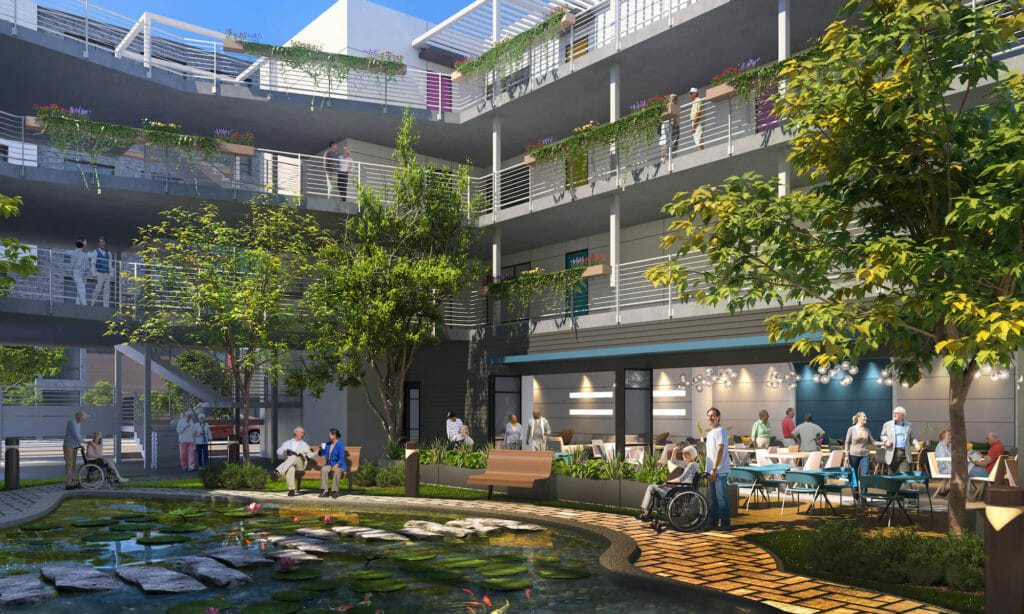According to the Population Reference Bureau, recent declines in marriage, increases in divorce, and reduced family size have led to decreased access to family caregivers for older adults.
As a side effect of increased divorce and remarriage, adult children are less likely to feel obligated to care for elderly stepparents or absentee parents. Traditionally, healthy spouses of seniors and their adult children have provided critical care to those who otherwise might require costly institutional care. The rising cost of both housing and medical services only amplifies this growing problem.
KTGY’s R+D Studio considered how the design principles associated with co-living developments could be adapted to provide a new approach to assisted living for seniors. Encouraging further variation in the housing options for current and future seniors, we developed Co-Care: a collaborative assisted living concept.
We began by modifying a unit and building plan we developed as a co-living solution for those looking for unique approaches to reducing housing costs (an R+D concept we call Co-Dwell), and then adjusted the units to accommodate universal design elements for seniors, and then integrated the service spaces typical to assisted living communities, as well as amenity features encouraging social interaction between residents.
Beyond the economic benefits of communal living for seniors, the health and longevity benefits are deeply compelling. In her testimony before the U.S. Senate Aging Committee, Julianne Holt-Lunstad, Ph.D., outlined the growing struggle American adults are facing with social isolation. Shifts in how individuals live and relate to one another affect more than just an individual sense of loneliness; they also have a measurable negative connotation with overall public health, particularly within the senior demographic. Lack of regular, positive social interaction can result in increased depression, reduced cognitive function and premature mortality. Additionally, social isolation can encourage other negative health habits (such as smoking or overeating), creating a cycle of negative health consequences.
KTGY’s Co-Care concept proposes a socially stimulating housing option for seniors needing an extra level of care. Each Co-Care unit includes two sleeping wings, with a private entry accessing two bedrooms and a bathroom. Between each sleeping wing, sliding doors open to a small, shared living and kitchen area. Each four-bedroom unit is intended to house four single adults, two couples or a combination of two singles and a couple. By encouraging four residents to a unit, small, family-like entities are created, integrating resident interaction and support by design.
With modern medical advancements, today’s older adults are living healthier and more vibrant lives through their retirement years. But as life situations change, and a growing number of seniors chose to remain living on their own, they may become susceptible to the negative impacts of social isolation. Carefully curated communities designed to encourage collaborative lifestyles, such as the Co-Care concept, could provide another senior housing option that not only will offer the services and care they need, but also significant health and social benefits beyond what they realize are even possible.





